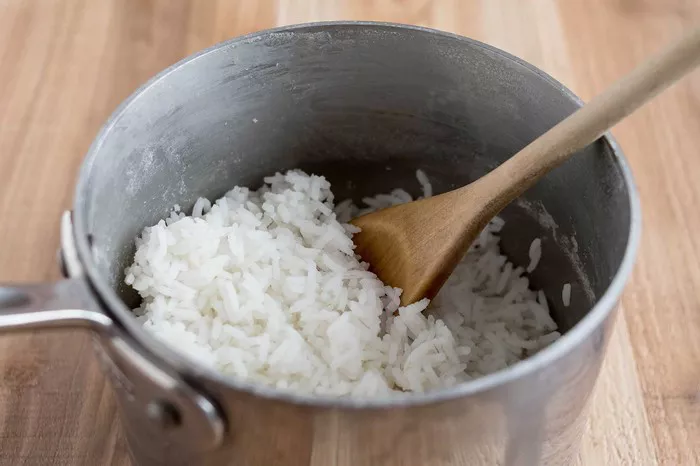Rice, a staple food in many cuisines around the world, is not only versatile and delicious but also incredibly convenient. Whether you’re cooking up a batch of fluffy white rice, nutty brown rice, or fragrant jasmine rice, it’s common to end up with leftovers. So, what do you do when faced with surplus cooked rice? Freezing it can be a smart solution to extend its shelf life, but how long can you freeze cooked rice?
In this comprehensive guide, we’ll explore the ins and outs of freezing cooked rice, including the optimal storage methods, potential risks, and useful tips to ensure your frozen rice stays fresh and tasty.
Why Freeze Cooked Rice?
Before we delve into the specifics of freezing cooked rice, let’s first understand why you might want to freeze it in the first place. Freezing cooked rice offers several benefits:
1. Convenience:
Freezing cooked rice allows you to prepare larger batches in advance and store them for later use. This is particularly handy for busy individuals or families looking to streamline meal preparation.
2. Prevention of Food Waste:
By freezing leftover cooked rice, you can prevent it from spoiling and ultimately reduce food waste. Instead of throwing away excess rice, you can preserve it for future meals.
3. Cost-Effective:
Buying rice in bulk and freezing cooked portions can be a cost-effective way to stock up on this pantry staple. It’s often more economical than purchasing pre-packaged frozen rice.
4. Versatility:
Frozen cooked rice can be quickly reheated and incorporated into a wide range of dishes, including stir-fries, soups, casseroles, and fried rice. It serves as a convenient base for various recipes.
Now that we’ve established the benefits of freezing cooked rice, let’s explore the key considerations for proper storage and preservation.
How to Freeze Cooked Rice?
Proper storage is crucial to maintaining the quality and safety of frozen cooked rice. Follow these guidelines for optimal results:
1. Cooling Down:
Allow the cooked rice to cool completely before freezing. This helps prevent condensation from forming inside the storage container, which can lead to freezer burn.
2. Portioning:
Divide the cooked rice into smaller portions based on your anticipated serving size or recipe requirements. This allows for easier thawing and minimizes the need to defrost more rice than necessary.
3. Packaging:
Transfer the cooled rice portions into airtight freezer-safe containers or resealable freezer bags. Press out any excess air before sealing to minimize the risk of freezer burn.
4. Labeling:
Clearly label each container or bag with the date of freezing to keep track of its freshness. Additionally, note the type of rice and any seasonings or ingredients added, if applicable.
5. Freezing:
Place the sealed containers or bags of rice in the freezer, ensuring they are arranged in a single layer to allow for even freezing. Avoid overcrowding the freezer to maintain proper air circulation.
By following these storage guidelines, you can ensure that your cooked rice remains fresh and flavorful during its time in the freezer.
Shelf Life and Safety Considerations
Now, let’s address the burning question: how long can you freeze cooked rice? The answer depends on several factors, including the type of rice, storage conditions, and packaging methods.
In general, properly frozen cooked rice can be stored in the freezer for up to 1-3 months without significant loss of quality. However, it’s essential to note that the texture and taste of rice may deteriorate over time, so it’s best to consume it within the recommended timeframe for optimal enjoyment.
To maintain food safety, always thaw frozen cooked rice in the refrigerator or using the defrost setting on your microwave. Avoid leaving rice at room temperature for extended periods, as this can promote bacterial growth and increase the risk of foodborne illness.
Tips for Freezing Cooked Rice
To ensure the best results when freezing cooked rice, consider the following tips:
1. Use High-Quality Rice:
Start with high-quality rice varieties for the best flavor and texture. Long-grain rice, such as basmati or jasmine, tends to freeze well and retain its shape after thawing.
2. Avoid Overcooking:
Cook the rice until it is just tender and avoid overcooking, as mushy rice may become soggy when frozen and reheated.
3. Seasoning Options:
You can add seasonings, herbs, or aromatics to the cooked rice before freezing to enhance its flavor. Experiment with different combinations to suit your taste preferences.
4. Reheating Techniques:
When reheating frozen cooked rice, consider using methods such as steaming, microwaving, or stir-frying. Adding a splash of water or broth can help revive the moisture and fluffiness of the rice.
5. Repurposing Leftovers:
Frozen cooked rice can be repurposed into a variety of dishes, including rice salads, stuffed peppers, and rice pudding. Get creative with your culinary creations!
Conclusion
In conclusion, freezing cooked rice is a convenient and practical way to extend its shelf life and minimize food waste. By following proper storage guidelines and safety precautions, you can enjoy delicious and versatile rice dishes anytime, without compromising on quality.
Whether you’re meal prepping for the week ahead or saving leftovers for a quick and easy meal, freezing cooked rice opens up a world of culinary possibilities. So, stock up on this pantry staple, freeze with confidence, and savor the goodness of perfectly preserved rice whenever hunger strikes.























